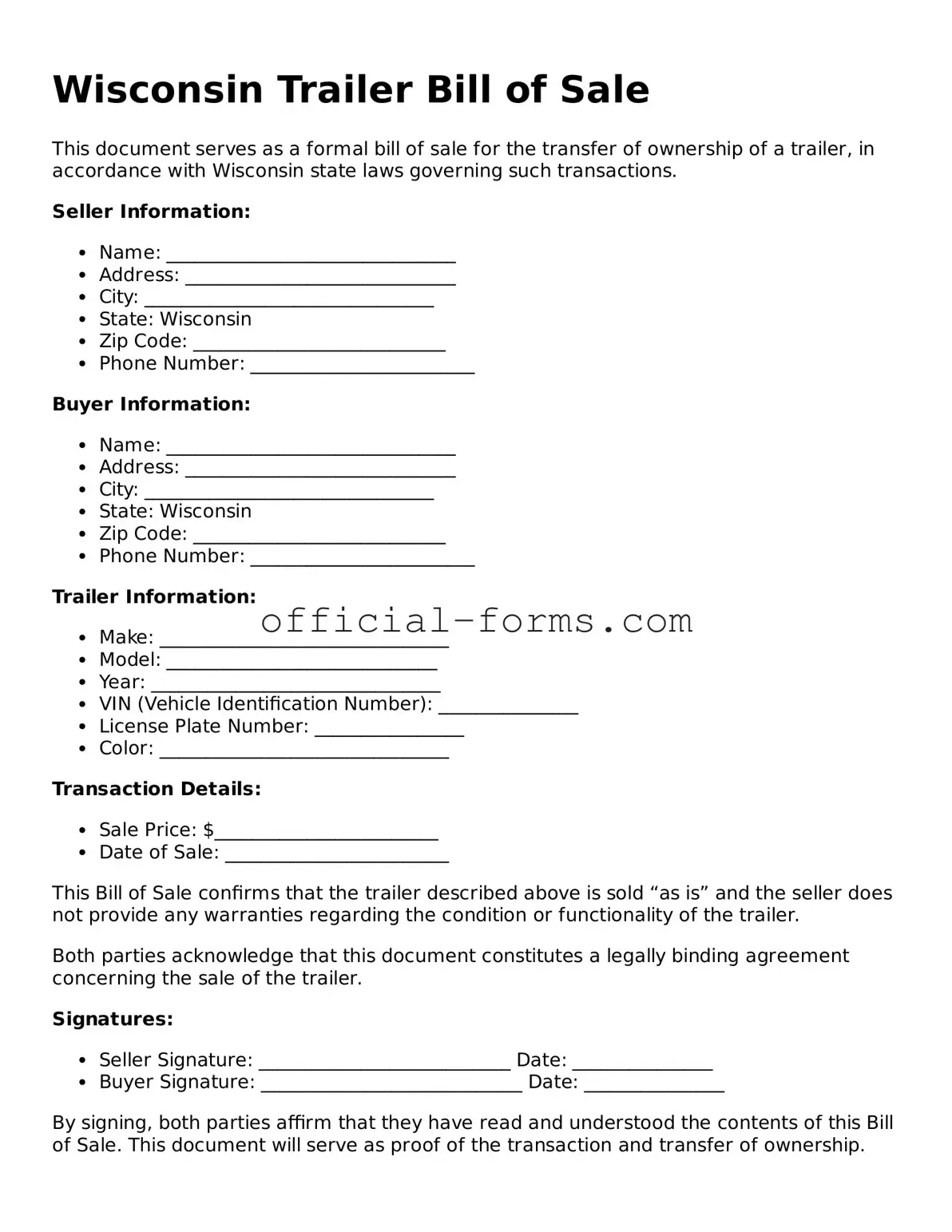Official Wisconsin Trailer Bill of Sale Document
The Wisconsin Trailer Bill of Sale form is a legal document used to transfer ownership of a trailer from one party to another. This form serves as proof of the transaction and outlines important details such as the buyer's and seller's information, trailer specifications, and sale price. Understanding this form is essential for ensuring a smooth transfer and compliance with state regulations.
Open My Trailer Bill of Sale Now

Official Wisconsin Trailer Bill of Sale Document
Open My Trailer Bill of Sale Now
Don’t leave your form incomplete
Finish Trailer Bill of Sale online quickly from start to download.
Open My Trailer Bill of Sale Now
or
➤ PDF
